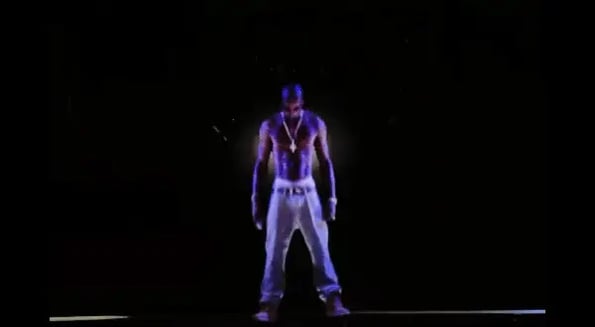The ghost of Whitney Houston is coming to a stage near you in 2020 — and she’ll likely be the opening act for years of deceased artists to follow.

A company called Base Hologram is one of several companies seeking to turn hologram shows into a regular part of the music industry, Fast Company reports — like you might remember from the gimmicky Ghost Tupac appearance at 2012 Coachella.
The not-so-surprising result of our nostalgia obsession
Though Keith Richards may seem immortal, he and other popular musicians are not going to be around forever.
Yet when it comes to concerts, old is in: U2, Journey, Def Leppard, and The Rolling Stones were among the top 10 highest-grossing tours last year.
So Base Hologram, which has secured rights for Roy Orbison and Buddy Holly, is aiming to give the “Farewell Tour” an entirely different meaning by staging hologram concerts with the digital likenesses of deceased stars.
It’s becoming common for movies, too
A company called Digital Domain uses scanning technology to de-age actors and create 3D digital images of them. You’ve seen it with Carrie Fisher in “Rogue One” and Samuel L. Jackson in “Captain Marvel.”
Entertainment insiders tell MIT Technology Review the casting of deceased actors and younger versions of actors is going to become more prevalent because they’re a “safe bet” in an increasingly risk-averse industry.
In other words, Blade Runner 2098 could still have Harrison Ford in it.
But doesn’t this seem a little unethical?
Some current actors are opting to make digital versions of themselves (or signing contracts with studios that require it).
But, that’s not the case with Houston and other deceased artists, whose rights are being sold by estates and record labels. Critics have likened the hologram business to “ghost slavery.”
But don’t expect their concerns to stop any holograms from taking stage.
Peter Lehman, an Arizona State professor who wrote a book about Orbison, says, “People who are appalled by this should stay home, but stop worrying about the music world as we know it.”

